I look up, head first in an MRI machine, breaths shallow, the panic clawing at my chest. They tell me to keep still, to stay calm. But I feel like I am drowning, the headphones filled with a clanging noise. It’s jarring, my cheeks redden. The first tears spill, cheeks swollen with misery. At this moment, time is supposed to be a constant. 15 minutes they say, and then everything will be over. But in this moment time slows down. Yawning like someone who dosen’t have anything better to do. 10 minutes playing games, I lose sight of time, lost in the world of make-believe. But here, the environment feels like high pressure. Trapped in a machine that feeds into my claustrophobia. Wishing that time would speed up. Fuelling my time anxiety, making me panic. It’s strange. Time isn’t a constant technically. It is relative, depending on an observer’s frame of reference, motion, and gravity, making it not absolute.
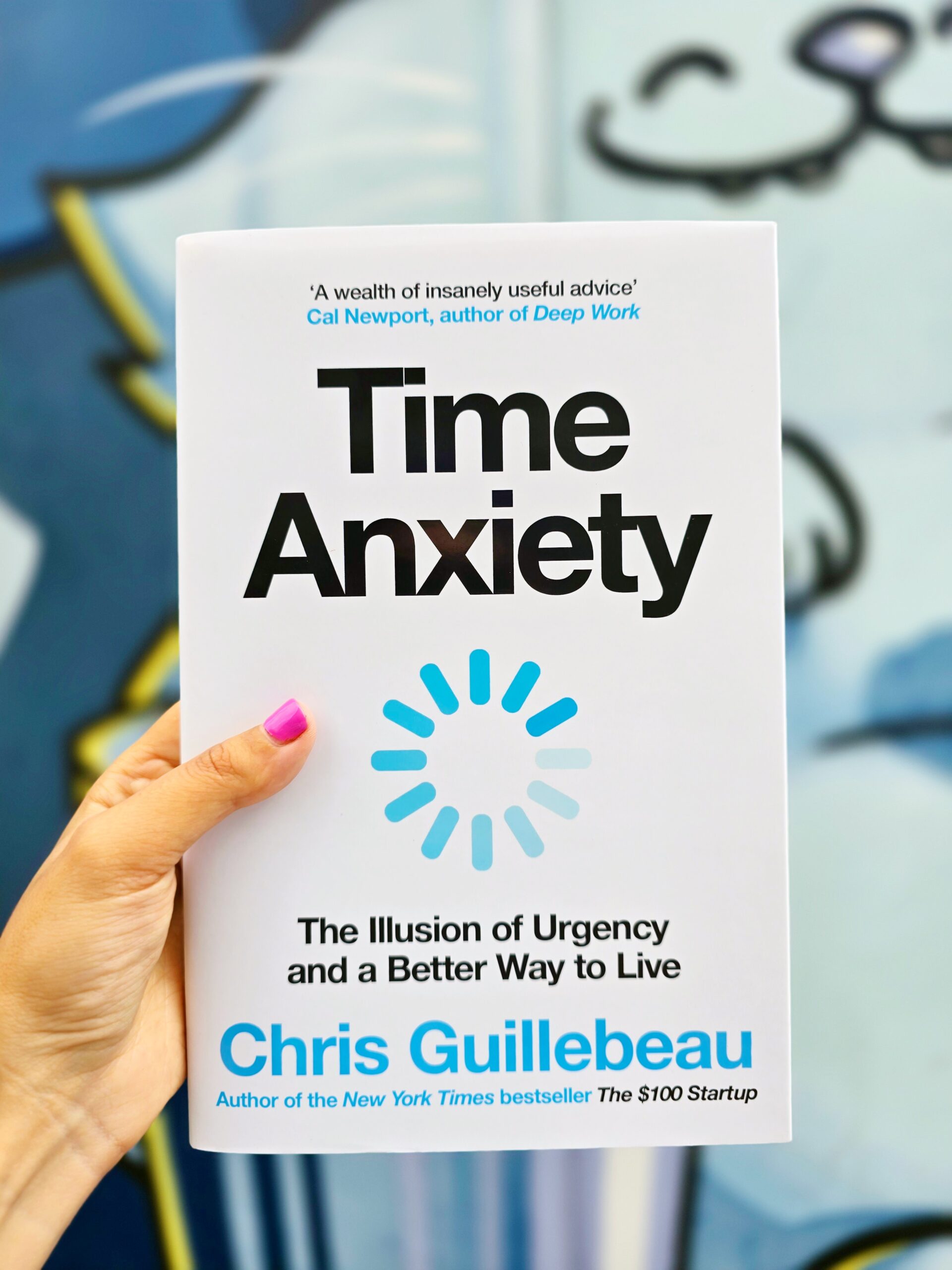
At other times, it feels like slips through my fingers. A deadline with suddenly no time to spare. A social event i’ve been dreading, but can’t quite escape. A party with people that set off old traumas I thought i’d healed from. As someone who is living with complex PTSD, anxiety, and depression, I’ve learned that time anxiety is more than just a fear of being late — it’s a chronic, soul-draining sense that I’m behind in life. That I’ll never catch up. That I should be doing more, being more, achieving faster. All while my body feels like it’s on fire — heart racing, mind spinning, shoulders tense like coiled springs. Time anxiety isn’t just a ticking clock. It’s a ticking bomb. I am 31, unmarried, no children, don’t own my house. I have financial instability, am neurodivergent, and struggle with conflict. I’m far behind the so-called society standard of where I should be in life. Sometimes, that scares me. Another year gone, another milestone unticked. They say we shouldn’t compare ourselves to others, but it is easier said than done when you have ‘time anxiety’.
A memory slips by. I’m at a friend’s wedding, surrounded by a bunch of people that have their ‘ish’ together. Accomplished, good jobs, financially stable. I’m not jealous, far from it. Someone that loves championing other’s success. Who is described by friends as the biggest hypewoman, and cheerleader. But i’m conscious of time. I’m another year older, letting opportunites pass me by. Allowing my anxiety to take over my life, to stop me from doing the things I once loved. I lose sight of my purpose, struggle to know what direction i’m heading in next. They say that time anxiety and trauma are directly linked. That complex trauma can disrupt a person’s sense of time, making it difficult to connect past, present and future. I should know. Sometimes my memories are fragmented. They don’t add up. No linear timeline, disconnected from the truth. Moving slowly, moving fast. Surviving abuse, escaping neglect. Transitions from family to family. Foster care, and new family adjustments. Bullying and conflict.
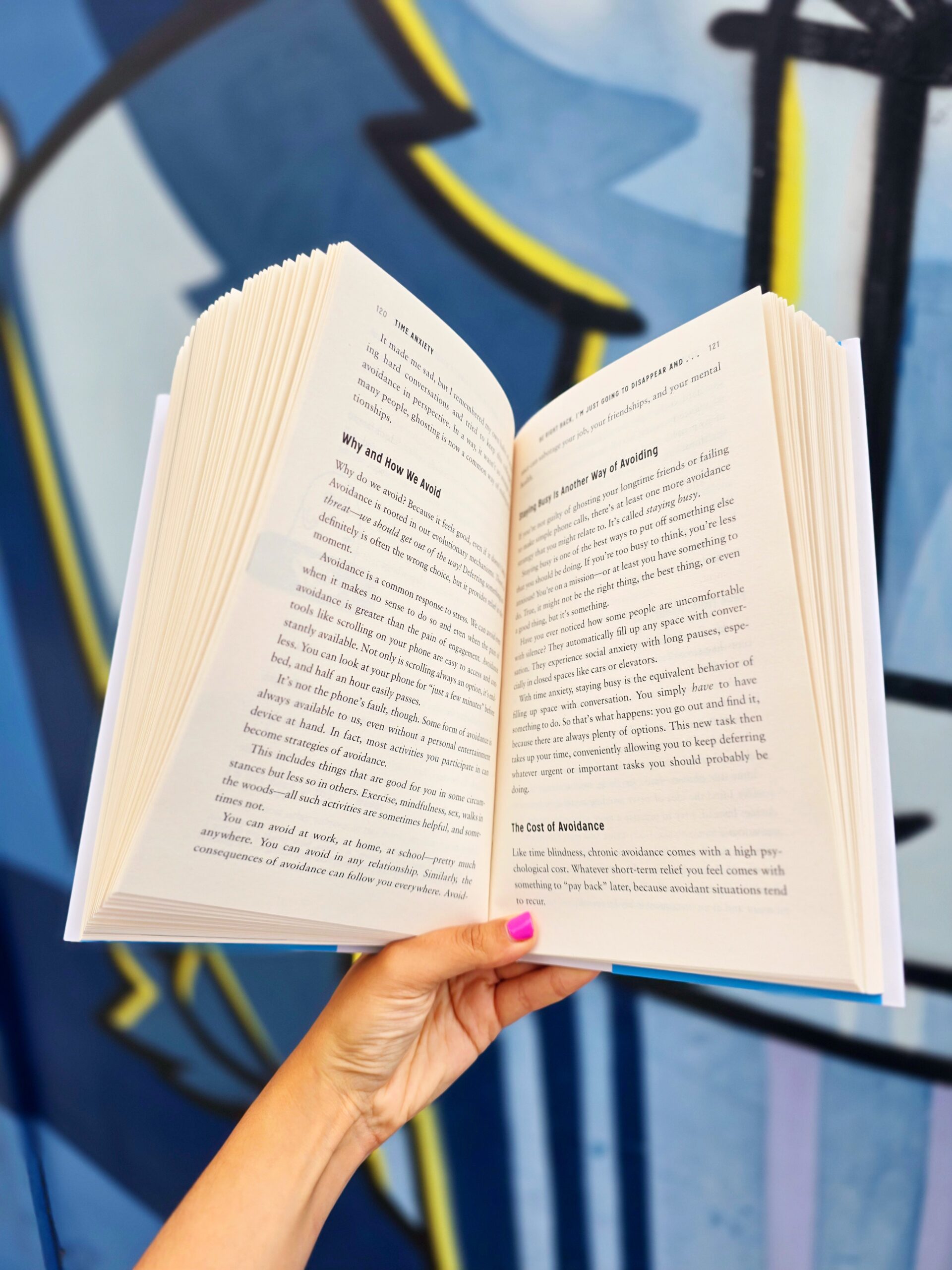
What Is Time Anxiety?
Time anxiety is a new term to me. The fear of wasting time. That you are racing against the clock but can never win. For me, I constantly check the time. Worried that I will be late for an appointment, so I turn up 30 mins early. Struggling to get organised so I rush to meet a friend, hyperventilating on the way. Constantly finding things to do so I don’t have to deal with the buzz of uncertaintity, when I am home. Feeling lost, and on edge, when I am ‘doing nothing’. Finding it hard to sit in the silence, feeling like I want to crawl out of my skin. While time anxiety affects many people in a productivity obsessed culture, for those of us with trauma, it can feel different.
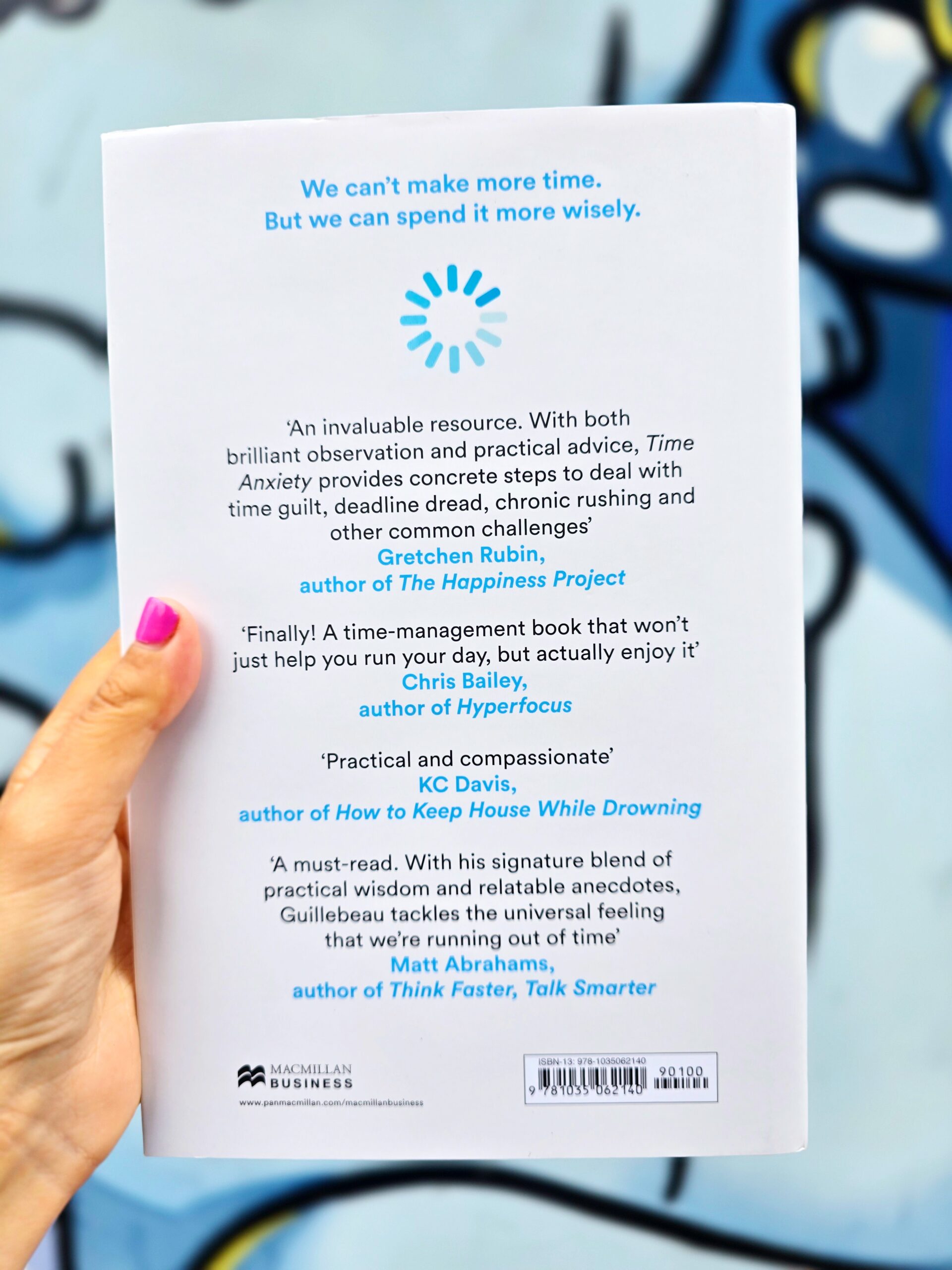
- It can be panic when you don’t have a plan for the day.
- Guilt during rest or relaxation
- Overcommitting out of fear you’re falling behind
- Constantly checking the time or obsessively planning the future
- An overwhelming fear that life is passing you by
For me, the first two are especially hard. At the moment, I feel aimless. For transparency, i’ve had to take time away from everything for a while, because of my physical and mental health. I have been in A&E, doctors, the hospital, and had countless tests done. I have been in a state of panic because I am A. struggling to do the things I love, as my ‘time anxiety’ is taking over, B. taken rest days, and felt worthless, unvalued, and uncertain. It is hard when you are ill to balance work, physical health and mental health. There are times where you are completely burnt out, the exhaustion etched into your bones. Then at others, the adrenaline is in overdrive. You can’t sit still, you can’t sleep. You get anxiety about everything, even the small things.
How do we stop overstressing, overdoing, and underliving? How do we become happier, more productive, and be kinder to ourselves? That’s something that Chris Guillebeau aims to uncover. Titled ‘Time Anxiety: The Illusion of Urgency and a Better Way to Live’, his book aims to change the way we see time for the better. A book, that is more than just a story, but a manual. Admittedly, I rolled my eyes at first. I had decades of trauma, all these years of working on myself hadn’t worked, so what would change now?
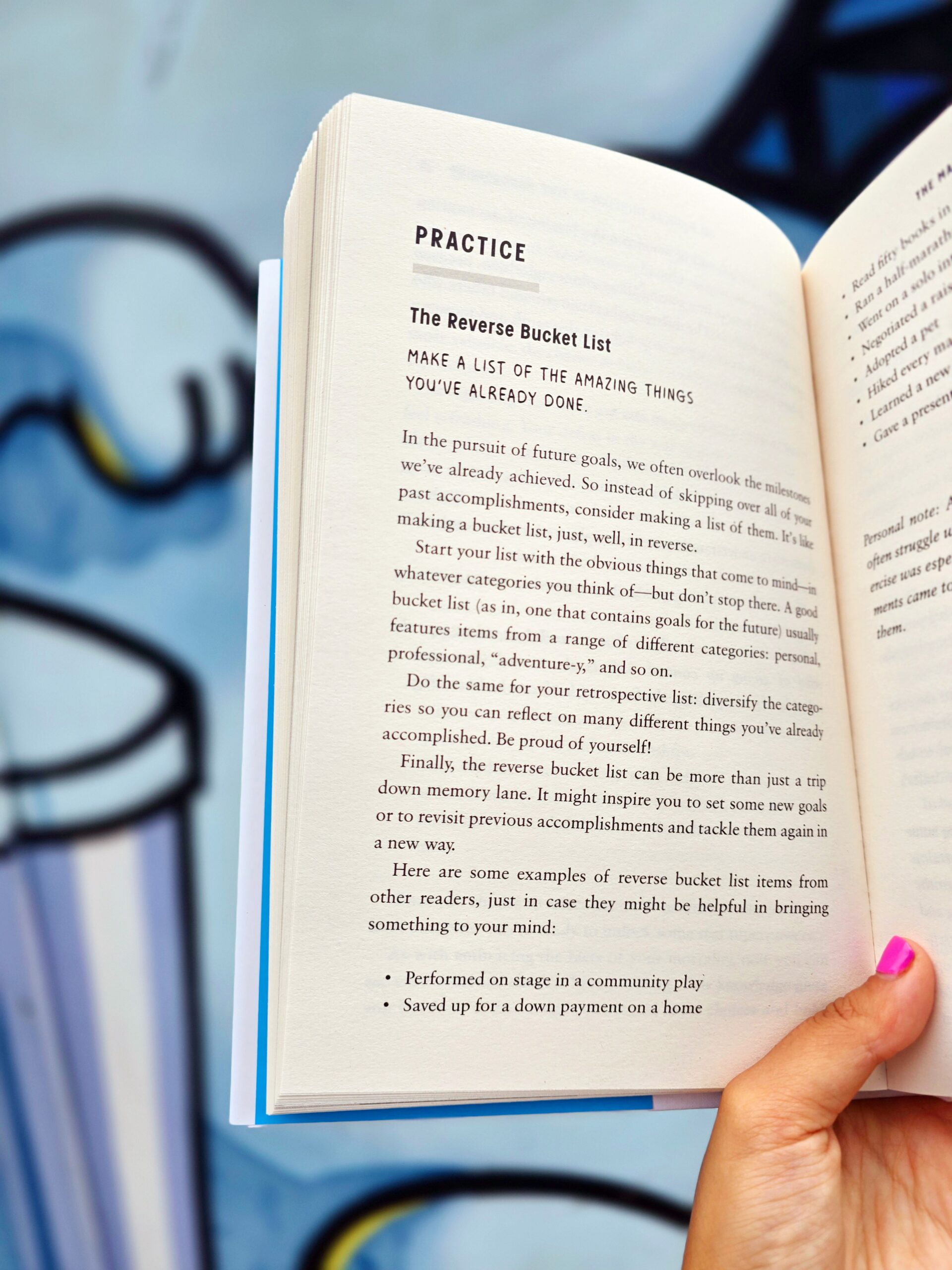
At first, I couldn’t pick it up. Even the title triggered me. Someone who read books to quickly and readily, eyeing it warily. Why? Because I was scared of what I would read. That all these years operating with high-functioning anxiety would change just like that. It’s not a miracle cure, sure. But its smart, insightful and practical. More than anything I learned a lot. How we can set our own limits, rather than concentrating on what other people want us to do. How to abandon the goal of catching up, and focus on the small things instead.
Could I, the self-confessed chronic rusher, learn to slow down, and actually enjoy it? No, but change can’t happen overnight, no matter how good the book might be. It takes weeks, months, years, even decades of self-reflection. Learning to break down unhealthy patterns and replace them with kinder, slowed down habits. Author of the popular newsletter ‘A Year Of Mental Health’, he reveals that ‘time scarcity’ stems not from a lack of hours in the day but from unrealistic expectations and misaligned priorities. That’s something that him and my therapist have in common. Telling me that I am focusing on too much at a time, that I need to focus on small things. Taking baby steps was never my forte. With the gracefulness of a dinosaur charging into a shop, I attack tasks. The never-ending to do list, the warped perception of time. Something I unlocked recently, which Chris focuses on? The psychological roots of avoidance. Why do we do it? How can we overcome our fear. How do we redefine our relationship with the clock. I was someone who never cancelled anything. Who never rescheduled. Even when I have been very ill, and vomiting on the spot. Having panic attacks, trying to push my emotions down.
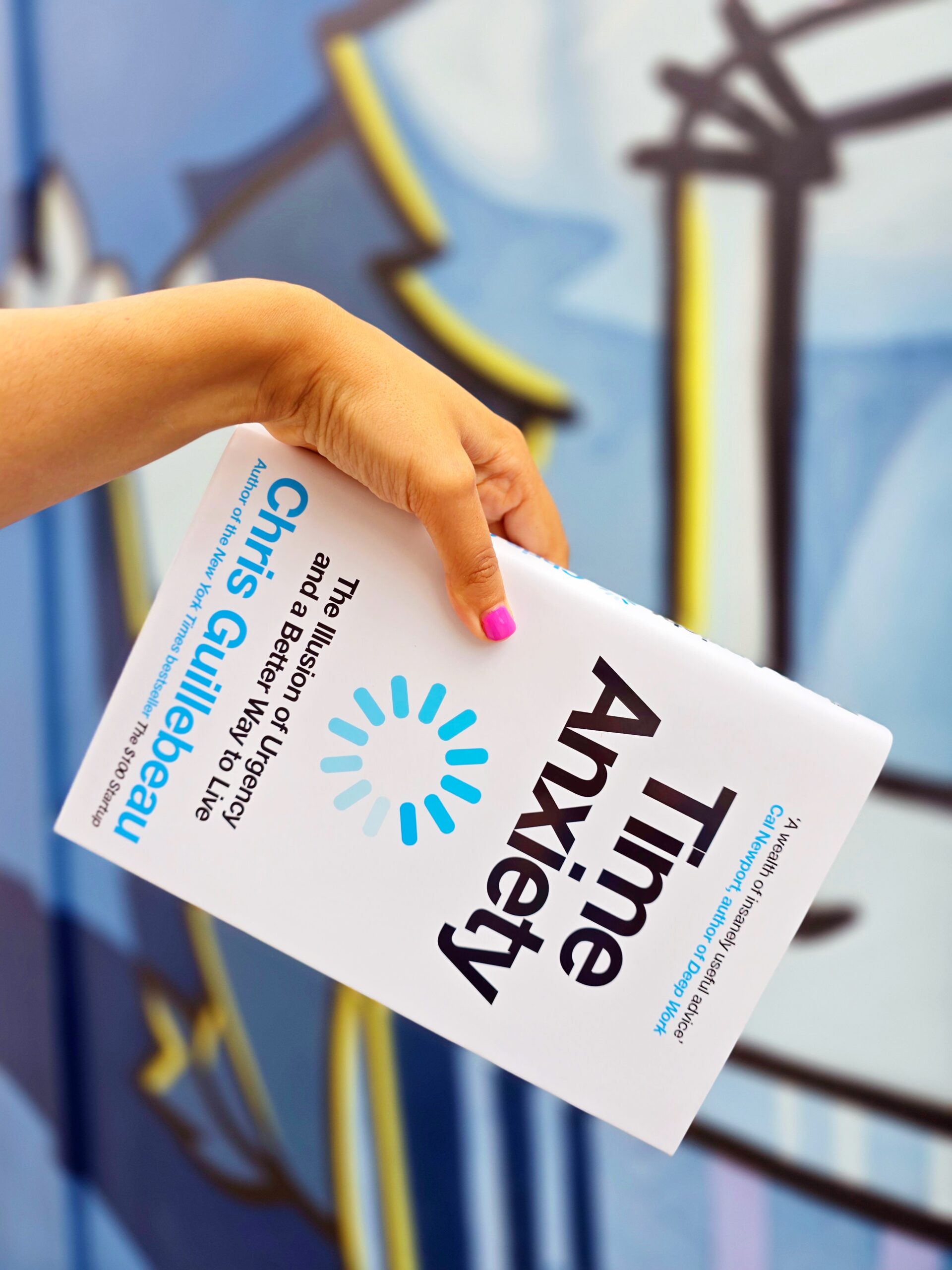
I’m learning to do better with a little help from Chris (and my therapist), along the way. For so long, I have operated out of fear. I have to meet this person, otherwise they won’t like me anymore. I have to work, otherwise I can’t pay my bills. I can’t do this restaurant review, because I am too anxious. I don’t want to go to this event because I am afraid of what might happen. Sometimes the hypotheticals get in the way of our reality. Our maybes, don’t automatically become a yes. One slip up isn’t always a pattern. Weaving together eye-opening research on time perception, and executive functioning challenge, Guillebeau knows what he is talking about. One of the biggest life lessons I learned from him, was to abandon the goal of catching up. I never knew how to set my own limits, because my actions are often determined by others. People called me lazy growing up. Now, I non-stop work, to the point of burn out, without a thought for the consequences. I was called a drama queen and attention seeker for crying. Now, I feel shame when I am upset.
I am trying to do better. To realize that sometimes, I don’t need to take people’s opinions literally. Not when it is not helpful, and is damaging to my mental health. Instead, I have to set my own limits, because noone else will. That means slowing down. Being OK with the silence. Having at least one rest day a week. Realizing that not all my purpose is connected to work. It is important to feel happy. Life is too short for to do lists, and constant work. Have balance. Work, life, play. Don’t feel guilty when you have to take time out, because you are ill. Just because someone can’t see your illness dosen’t mean its not there. Perhaps the key takeaway I learned is that people don’t need to see how bad it can get. You don’t need to try and overexplain yourself, so that people believe you. You don’t need to show how bad you are, just to prove a point. Your limits are your own. It takes practice, but slowly, you’ll learn what works for you, and what dosen’t.
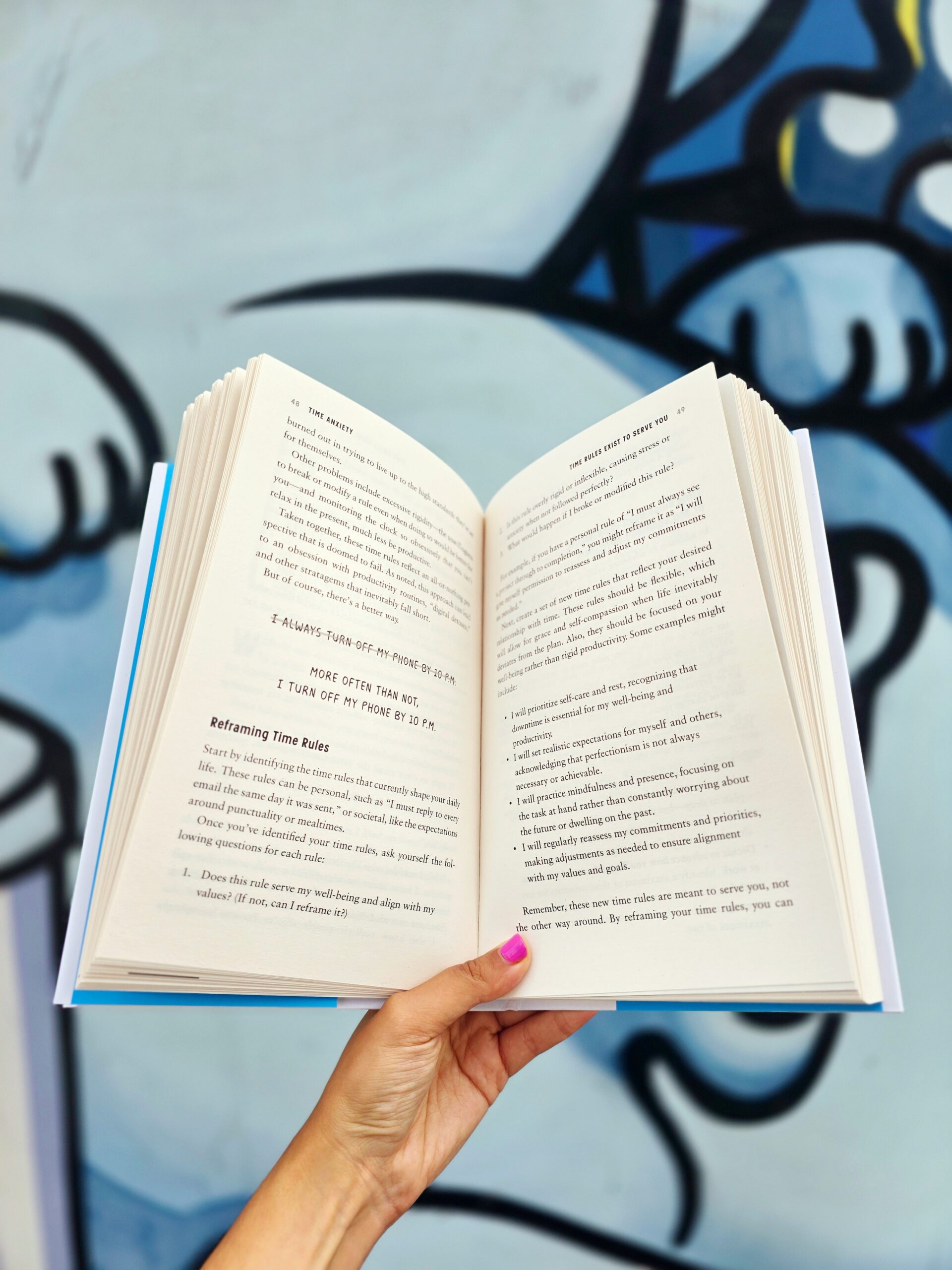
As well as helping me to set my own limits, it allowed me to invest my finite energy wisely. I am someone who often dosen’t prioritise the right things, spend too much time thinking about things that shouldn’t matter, and operate on a fear-based state. With help from the ‘Time Anxiety’ guru himself, I am learning how to weigh the trade-offs between competing values and priorities, so I can be empowered, not fearful. That means saying no to things that don’t benefit me. Understanding how being a people pleaser often contributes to my time anxiety. Saying yes to too much, and not having respect for my own personal boundaries.
Now, I am learning to navigate the ‘unrealistic time rules’ i’ve set for myself, and how to change my way of thinking. For example ‘ I must write two blog posts today, and edit images, write 50 emails, attend two events, see friends, have a doctor’s appointment and do a review’. That is unattainable. Instead ‘ I will try and write one blog post, but I will finish it tomorrow. I will write 25 emails, but it is OK if I can’t achieve that. I will go to my doctor’s appointment, and have some rest afterwards. I will move my review to another day. I used to think that cramming in more tasks, would help me with my fear, my anxiety, my health. In reality, this book has taught me, that it’s ruining my life. It is stopping me from living my own authentic life. It tells me that it is not OK to rest. That I need to avoid things that keep bringing me pain. That I need to reschedule because i’m not ready. I can’t do it. But this book is refreshingly honest. It’s easy to read, no jargon here. It shows me that mindful living is achieveable, but I don’t need to put pressure on myself.
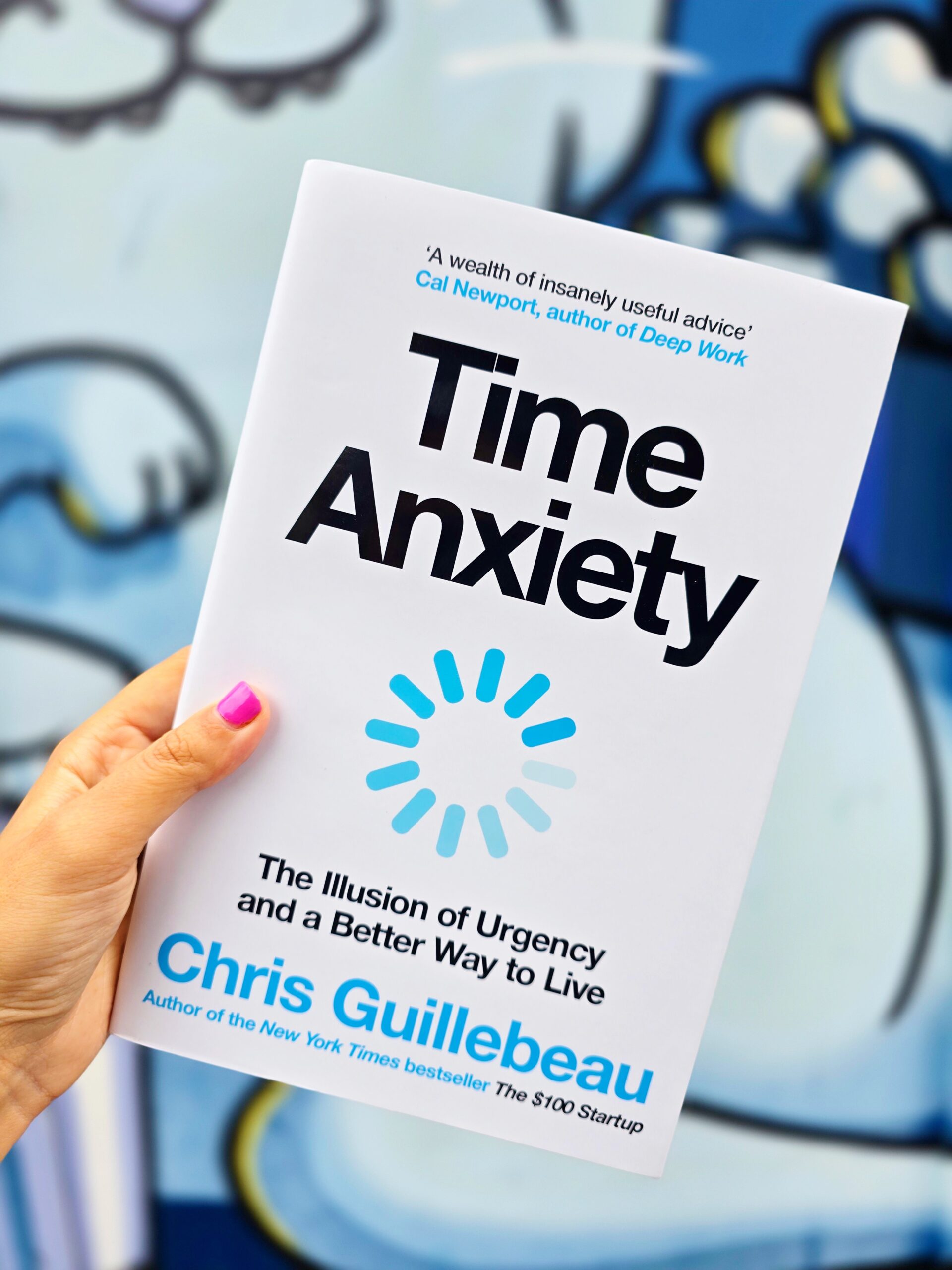
Sometimes when we are in our self-help era, we try and do as much wellness as possible. Go to bed at this time. Eat this kind of food. Say yes to this many things. In reality, that type of wellness is restricting, doing more harm than good. We can’t fix our lives overnight, no matter how much meditation or mindfulness you try. I used to wonder, why isn’t this for me? Isn’t this meant to help? But reading Time Anxiety said it in the name. Even when we are trying to do something that is ‘good on paper’ it can become damaging if we see it as a never-ending to do list. Why? Because when you get it wrong, it can feel like you are running out of chances to ‘get it right’. If we take wellness as as example, self-care can feel like just another hustle. There’s a pressure to create the perfect ‘never-ending’ morning routine. There are ‘too many shoulds’ when you are barely holding it together. It can lead to guilt in disguise. Sometimes I feel that when I am too anxious, I didn’t do it right. But here’s the T, that’s not how trauma works.
We need to stop trying to ‘win time’, because there are enough hours in the day. Time is not a threat, even when it feels like it. Chris emphasizes that we internalise rules like ‘I have to make the most of every second’. However, this leads to guilt and burn out. Here’s what most people don’t tell you. Time dosen’t need to be a test. It’s Ok to waste time. To take pause, and be unproductive. Even if you struggle with fight or flight like me, learning to ground yourself can do wonders for your time anxiety.
The three main rules I learned?
To Give Myself Permission To Pause
You don’t have to fix everything today. Time anxiety feeds off urgency, but most things can wait. There’s a difference between avoidance, and rescheduling something because your workload is too high. Your nervous system needs proof that nothing terrible happens when you slow down. That your worth isn’t based on output. Something I have started telling myself recently, is mini-mantras for my spirals. This isn’t an emergency. You just need to pause. You have time. You are not in danger. Even if my body says otherwise, speaking into the space can help.
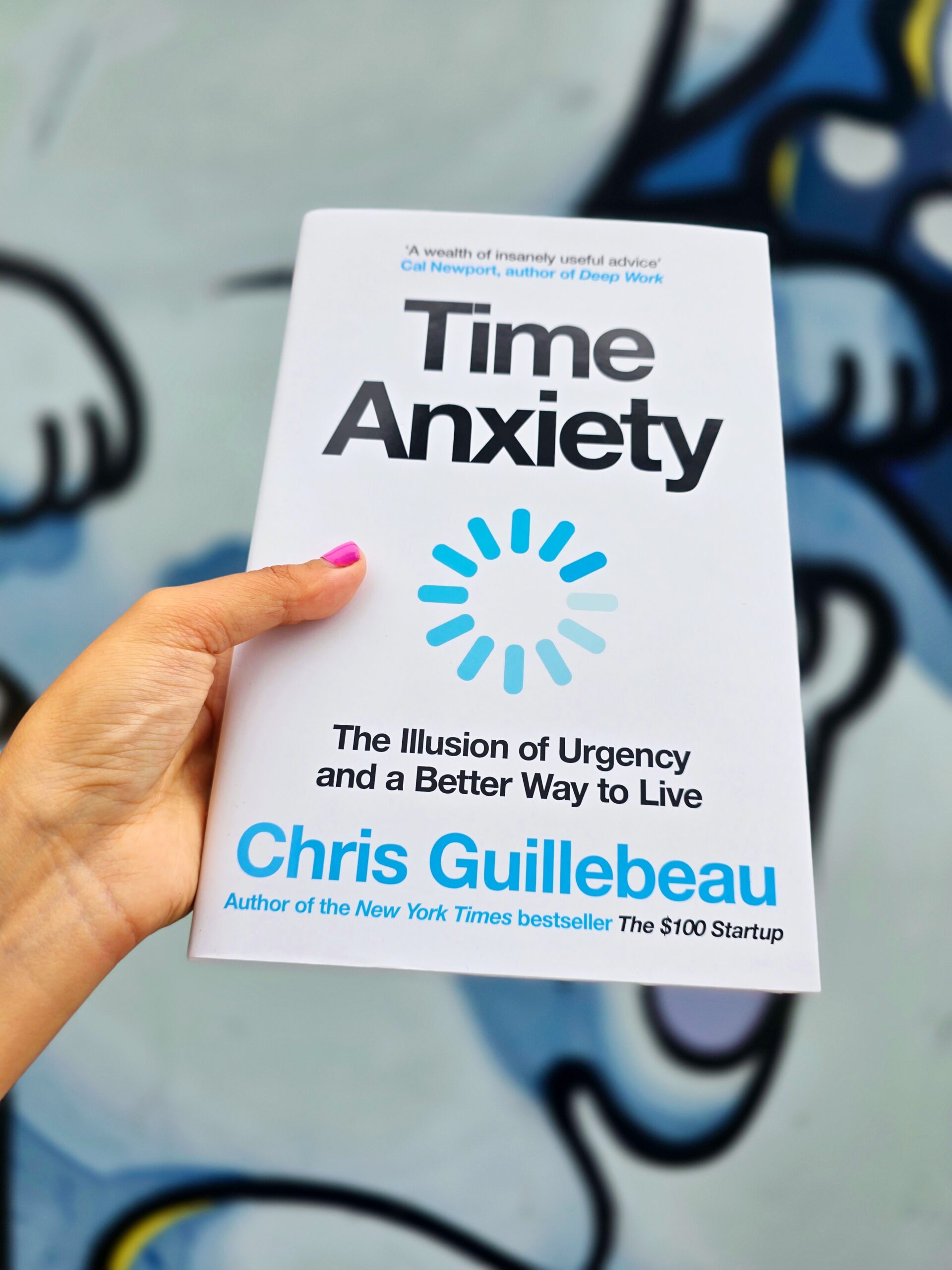
To Challenge My Internal Time Rules
I am someone, who like many trauma surviors carry invisible time rules. I take things literally, and believe that if I haven’t completed something, I have failed. This is because my trauma has turned these rules into survival codes. So, when I break them, it feels unsafe, even if it is quite literally hurting me. Now, I have started asking myself, what would it be like to break it…gently. What are three time rules I have internalised. Who gave me this rule? For example one of my subconscious rules were ‘if I rest then I am lazy’.But now, I am teaching myself that ‘rest is not lazy. It’s my body’s way of rebuilding safety’.
Ground Myself Before I Plan
Granted ‘Time Anxiety: The Illusion of Urgency’ isn’t a Scientific thesis. It is isn’t backed by dramatic findings, or filled with impossible words that are hard to pronounce. It is colloquial, sometimes bordering on personal opinion rather than backed research. But quite honestly, I don’t mind. It has taught me how to regulate my nervous system and ground before I plan. When my body is flooded with adrenaline or dread, no planner or app is going to help. The to-do lists will serve as a reminder of what I haven’t achieved. The well-intended advice is going to make me feel bad. It is important to start in your body instead, rather than a calendar. If I am in a spiral, I ask: “What’s one small thing I want to do today—not what I should do?” See the importance of wording? Removing the shouds, and replacing it with happiness.
In Conclusion, This Book Is For You If You
- Struggle with imposter syndrome and are constantly trying to catch up to others
- Feel like you are running out of time and are running on adrenaline
- Need a self-kindness manual that will teach you to slow down and live in the moment
- Understand where your triggers for time anxiety is coming from and how you can work on them
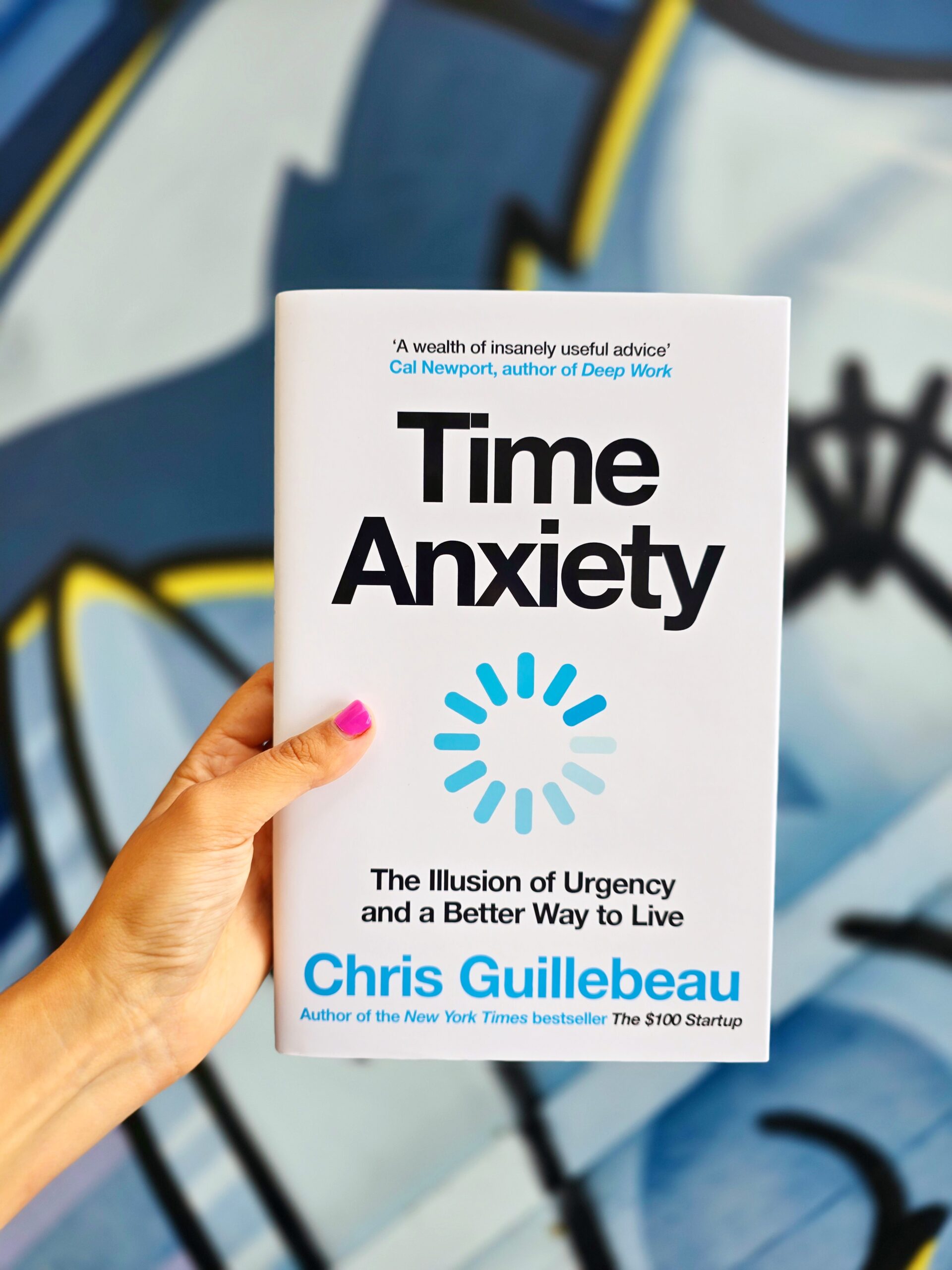
Do You Struggle With Time Anxiety?
*Disclaimer
Please note I was gifted a copy of this book in exchange for this review but all thoughts are my own and are not affected by monetary compensation.
Leave a Reply